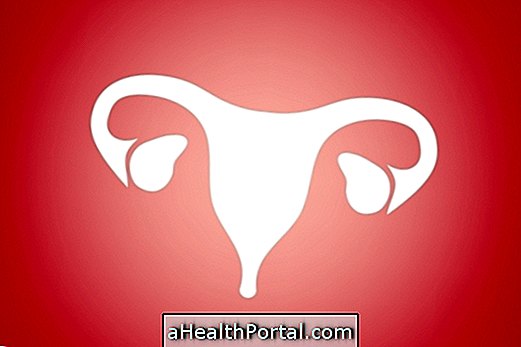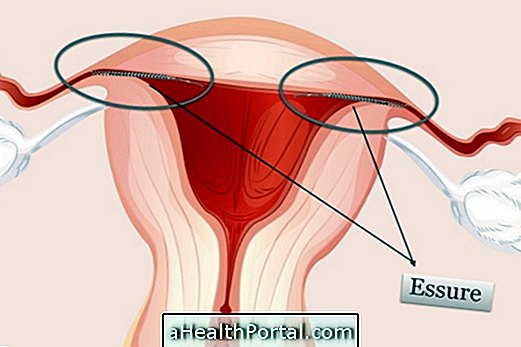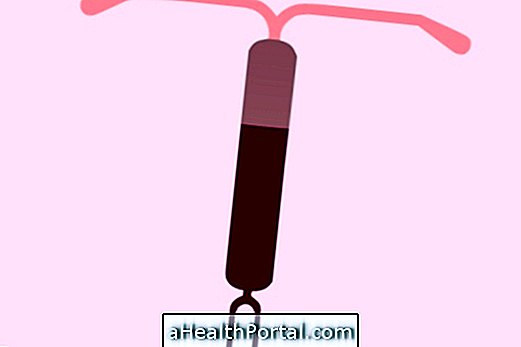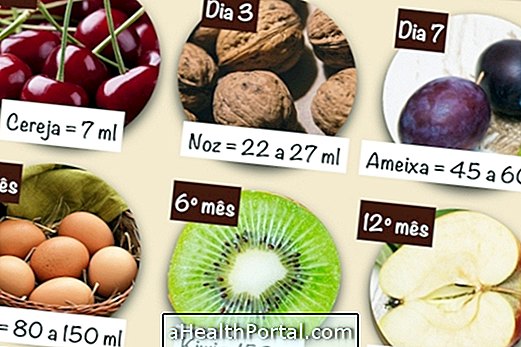Delayed menstruation is not always a sign of pregnancy, as other situations such as excessive stress, very strong emotions, hormonal changes or even excessive consumption of caffeine or alcohol can lead to delayed menstruation.
Generally, this delay in menstruation can last from 1, 2, 3 or 5 days to 1 to 2 months, and it is recommended to consult your doctor if menstruation continues to be delayed for more than 3 months and you are not pregnant, so that the cause can be identified and treated.
However, if there has been unprotected intimate contact a few days before, you are likely to be pregnant and it is recommended to have a home pregnancy test that can be purchased at the pharmacy to find out if you are really pregnant.

Late menstruation and negative pregnancy test
If your period is late and you have performed at least 2 pregnancy tests in the last month, with a 7-day interval between testing, you are very likely not pregnant and the delay in menstruation may be due to other situations such as :
- Excessive physical activity, as with athletes or people in preparation for some competition or sporting competition;
- Very restrictive diets;
- Poor diet or eating disorders such as anorexia or bulimia;
- Excessive stress;
- Ovarian changes;
- Diseases affecting the hypothalamus or pituitary;
- Hormonal changes caused by polycystic ovarian syndrome, endometriosis, fibroid or even by the morning-after pill;
- Use of continuous use pill that leads to absence of menstruation;
- Curettage or surgery in the recent pelvic region;
- Proximity of menopause, or possibility of early menopause; g
- Postpartum, because menstruation should only return after the woman stops breastfeeding, although it is necessary to use contraceptive methods during breastfeeding;
- Prolonged contraceptive use: There may be no menstruation for 6 months, or 1 year after the use of the quarterly contraceptive injection.
These situations can lead to absence of menstruation for more than 3 months (amenorrhoea) and it is recommended that you consult your doctor if this happens. Know other causes that can lead to delayed menstruation in Lack of menstruation is not always a sign of pregnancy.
Menstruation can also be considered delayed when the girl, who has reached the age of 16, has not yet menstruated for the first time, in which case it is called primary amenorrhea and should be investigated by the gynecologist. This delay in menstruation may be related to problems such as head trauma, prematurity or defects in the reproductive system such as imperforate hymen, vaginal septum, and also absence of uterus.

What to do in case of delayed menstruation
If you have missed your period for more than 3 months and you can not identify the cause, you should go to the gynecologist so that he can identify the cause and treat the problem, and in some cases the use of medicines to lower your period may be recommended.
The doctor may order tests such as the progestogen test and the prolactin dosage to be able to identify the reason for this delay and indicate the most appropriate treatment.
Also, depending on what is causing the delay in menstruation, reduce the intensity of physical exercise, take it easy, avoid stress and maintain a balanced diet varied and rich in vitamins and minerals are attitudes that help regulate the menstrual cycle.
It is also recommended that you consult your doctor regularly to identify possible health problems or diseases such as polycystic ovaries, endometriosis, anorexia, bulimia, hyperthyroidism or hypothyroidism that can cause changes in the menstrual cycle.
Home Remedies to Lower Menstruation
There are some home remedies that can help lower menstruation, but these should only be taken when there are no suspected pregnancies.
1. Cinnamon Tea
Cinnamon tea helps speed up menstruation in 1 or 2 days and to prepare this tea you need to:
Ingredients:
- 2 shanks in wood;
- 1 cup boiling water.
Method of preparation:
- Add the cinnamon stick to the boiling water, cover and let stand for 10 to 15 minutes. After that time remove the cinnamon sticks and drink when it is warm.

This tea should be drunk 1 to 2 times a day until the menses come down and if necessary can be sweetened with a little honey or sugar.
2. Tea of Agoniada
Agonized tea helps to speed up and cause menstruation and to prepare this tea needs:
Ingredients:
- 5 grams of dried flowers of agonized;
- 500 ml of boiling water.
Method of preparation:
- Add the agonized flowers to the boiling water and let stand for 10 to 15 minutes and strain before drinking.
You should drink 2 to 3 cups of this tea per day until the menses come down.
These teas are natural choices for when menstruation is delayed in a few days and should only be taken for 5 to 10 days, it is recommended to consult the doctor if menstruation does not come during this time, since these teas only accelerate the descent of menstruation, not regulating the menstrual cycle. In addition, there is no scientific evidence to work.
How to regulate menstruation
In addition to drinking teas that help menstruation to go down, there are some measures that can help avoid these situations where the menstrual cycle is unregulated, such as:
- To lead a healthy lifestyle, with regular practice of physical exercise and a healthy and varied diet, rich in fruits, vegetables and vegetables;
- Take pill contraceptive, as it helps to regulate the menstrual cycle;
- Avoid crazy diets and very restrictive, as well as doing harm to health, end up deregulating the menstrual cycle;
- Follow the indicated treatment to control Polycystic Ovarian Syndrome or thyroid disorders;
- Maintain the ideal weight.
These measures help to keep menstruation regulated, but it is always advised to consult the doctor to identify the cause responsible for the deregulation of your cycle.
When should your period come
Enter your information below and know when your period should come:





















